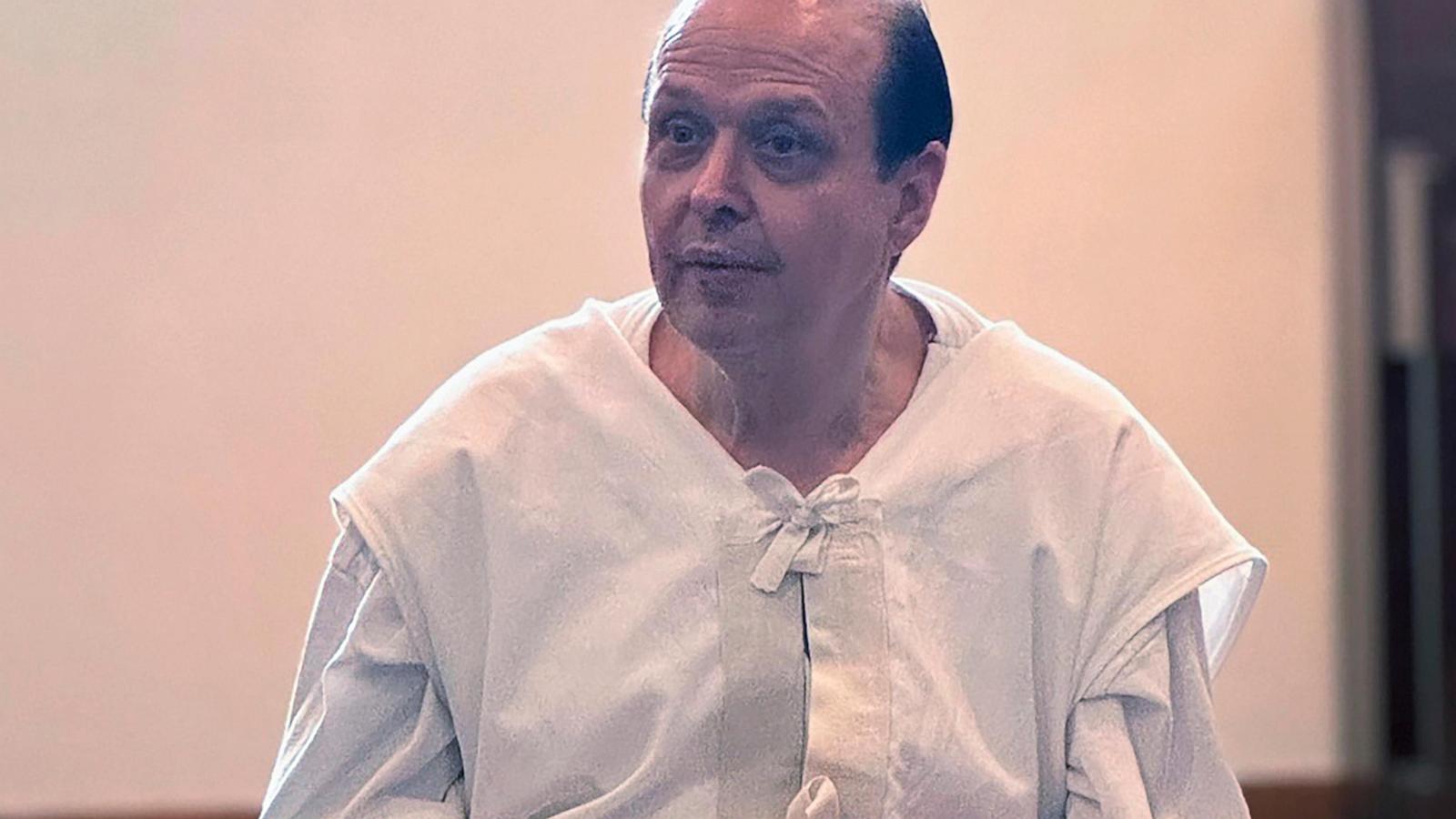Texas Death Row Inmate Robert Roberson: A Fight Against Shaken Baby Syndrome Conviction
The fight to overturn the death sentence of Robert Roberson, a Texas inmate convicted of killing his 2-year-old daughter based on a shaken baby syndrome diagnosis, has captured national attention. This gripping legal battle exposes the controversial nature of this diagnosis and its implications in capital cases. Will Roberson's execution be stayed? This question has generated intense debate among lawmakers, medical experts, and civil rights advocates alike. This compelling case has led many to question the very foundations of legal medical practices and wrongful convictions. Will this ongoing battle lead to justice or an unjust execution?
The Controversial Shaken Baby Syndrome Diagnosis
Robert Roberson was convicted in 2003 of murdering his two-year-old daughter, with shaken baby syndrome presented as the primary cause of death. Prosecutors claimed Roberson violently shook his child causing traumatic injuries, ultimately leading to her death. However, a growing body of evidence and a bipartisan group of Texas lawmakers now contest this conclusion, emphasizing the potential inaccuracies and misinterpretations involved in shaken baby syndrome diagnoses. Experts highlight cases where pneumonia, overlooked injuries, and other factors may have been misinterpreted or misdiagnosed as shaken baby syndrome, fueling controversy and raising serious doubts about the reliability of this diagnosis. The possibility that Roberson may be innocent leads to the question, could a wrongful conviction lead to an innocent person being put to death?
Medical Experts' Doubts and Alternative Explanations
The science behind shaken baby syndrome is not conclusive. Several medical professionals have come forward expressing significant concerns about the reliability of shaken baby syndrome diagnoses, and they advocate for more robust and detailed investigative procedures in cases involving infant injuries. They suggest the existence of alternative explanations which should not be ignored in light of recent medical breakthroughs.
The Legal Battle and Bipartisan Opposition
The case has ignited passionate bipartisan support against Roberson's conviction and execution. Lawmakers have questioned whether the 2003 conviction was properly adjudicated considering emerging doubts regarding shaken baby syndrome. There is serious deliberation on the misinterpretation of this specific medical theory. It could lead to the overturn of a conviction based on the possible misinterpretation of scientific evidence. Their attempts to subpoena Roberson's testimony prior to his scheduled execution were met with opposition from the state's attorney general. The use of a last-minute subpoena to halt an execution is unprecedented and reflects how contentious this case truly is. Is justice at stake or is this just another political drama in the state of Texas?
Texas' Junk Science Law and the Fight for Justice
Texas possesses a unique ‘junk science law' enabling people wrongly convicted based on questionable scientific evidence to seek overturning of their sentences. The bipartisan coalition behind Robert Roberson argues the law's application has not served justice in this specific instance. A considerable amount of opposition to this ruling exists from both sides of the political aisle. The Texas House Committee on Criminal Jurisprudence's efforts to use this law have resulted in several clashes. A legislative move as unprecedented as halting an execution is at the center of this ongoing controversy, while legal experts are analyzing the legislative actions in this case.
The State's Response and Arguments
The Texas attorney general strongly defends Roberson's conviction and asserts that the science hasn't evolved to the extent it warrants an overturning. Their position demonstrates a clash between legal and medical spheres and has led to many ongoing debates. The Texas Supreme Court has also issued its own position on the matter, stating the legitimacy of the subpoena while reaffirming the courts' power over scheduling the execution. They have refused to move the execution forward without additional procedural measures, keeping this case in contention.
The Future of Robert Roberson's Case
A new execution date is yet to be set, keeping Roberson's future uncertain and maintaining media attention on this case. The legal maneuvering and differing viewpoints from the state and lawmakers highlight the serious implications and questions raised by this case. The current state of affairs suggests a path forward remains uncertain but further legislative intervention might take place. Whether it will result in the halting of Roberson's execution is still undetermined.
Unanswered Questions and Public Scrutiny
The Roberson case continues to be a focal point, forcing critical discussions around the scientific reliability of shaken baby syndrome diagnoses and Texas’ ‘junk science law'. The lack of a final conclusion leaves critical discussions and political maneuvers at a standstill. With a lack of clarity on Roberson’s near future, there is still a growing question mark on whether this will result in a death penalty ruling, potentially causing further discussion and scrutiny around wrongful convictions.
Take Away Points
- The Robert Roberson case spotlights the ongoing debate surrounding shaken baby syndrome and its implications in legal settings.
- The controversy highlights concerns over the accuracy of this controversial diagnosis in several questionable instances.
- A bipartisan group of Texas lawmakers contests the accuracy of Roberson’s conviction, raising questions about justice and due process.
- This unique legal battle brings up ongoing discussion on legal uses of science in criminal trials.




